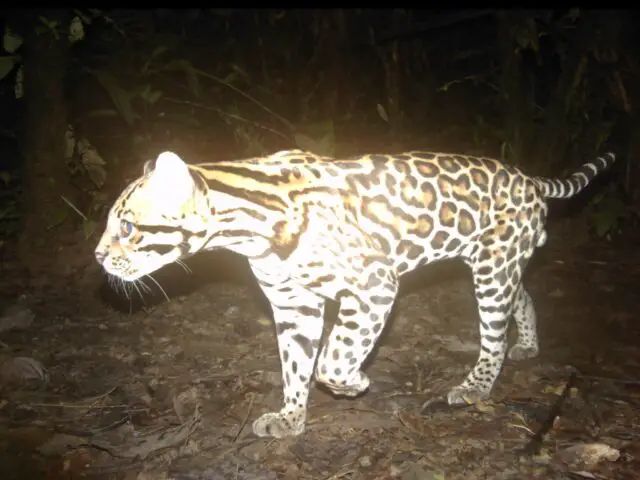In a sea of stories of species loss, scientists recently confirmed a win for the ocelots of Costa Rica and the ecotourists hoping to witness or see evidence of this elusive small cat.
A new study in the Journal of Mammalogy has confirmed that ocelot populations in the Central American country are relatively genetically diverse, which will allow ocelots to be more adaptable in the face of challenges like climate change, disease, and other threats.
The study, conducted by global wild cat conservation organization Panthera and partners, is the first of its kind in Costa Rica, and only the second in Mesoamerica, and is vital in helping scientists further understand how the species is coping with other threats such as vehicle strikes and habitat loss and fragmentation.
“Investigations such as this are critical in properly informing management decisions of this species, helping secure its long-term survival in the wild,” says lead author Roberto Salom-Pérez, Mesoamerica Regional Director for Panthera.
Although classified as Least Concern by the International Union for Conservation of Nature (IUCN), ocelot populations are decreasing worldwide. Wild cats often face a higher extinction risk than other wildlife due to factors including expansive habitat requirements and environmental pressures, the study says.
Researchers also found that Costa Rica’s ocelots have greater genetic diversity when compared to jaguars and pumas in the country. Salom-Pérez said this finding is unsurprising considering the ocelot’s habitat flexibility, reliance on smaller prey compared to larger wild cats, and higher population densities. The discovery also supports a theory in the scientific community connecting the greater threatened status of a species to lower genetic diversity.

In addition to the ocelot’s habitat flexibility and relatively large population in Costa Rica, the country’s plentiful forest cover likely contributes to the species’ high genetic diversity there, the authors hypothesized.
Scientists emphasized the importance of studying genetic diversity among free-ranging wildlife populations like wild ocelots, saying this method is still “largely ignored in many global conservation strategies.” But, they add, “A reduction in genetic diversity and the isolation of populations may decrease the long-term survival of a species by reducing its ability to adapt to environmental changes or human-related threats.”
Home to more than half a million plant and animal species, Costa Rica is one of the most biodiverse countries on the planet and a top destination for eco-tourists hoping to witness or see evidence of wild cats like ocelots and jaguars.
“This study’s findings are not only good news for ocelots, but also for Costa Rica’s booming eco-tourism industry,” Salom-Pérez says.
Panthera works on the ground in Costa Rica on a number of projects to protect and conserve wild cats. The Wild Cats Friendly Roads project has been making roads safer for wild cats and other wildlife since 2011 through collaboration with the Costa Rican government. Alongside the Wildlife Friendly Roads Group (VAVS), Panthera has been able to record 51 ocelots (see photo attached) killed on roads in 2021. The impact on larger species, like jaguars or pumas, maybe even higher as roads become barriers to their movement.
Panthera’s Jaguar Corridor Initiative (JCI) seeks to protect jaguars from Mexico to Argentina by working with governments, landowners, and corporations to develop and maintain protected corridors for this species to live and move. Costa Rica is one of 11 countries where Panthera is leading or supporting efforts for the JCI.
*This study was made in collaboration with partners from the University of Idaho, CATIE University, American Museum of Natural History, City University of New York, and Universidad de Costa Rica.

For those who have experienced shifts in consciousness and know that more peace, joy, and love awaits in a better living environment. A bold shared vision. A living community and hub for innovation. A sustainable ecosystem for living and working. A model for the new future.
